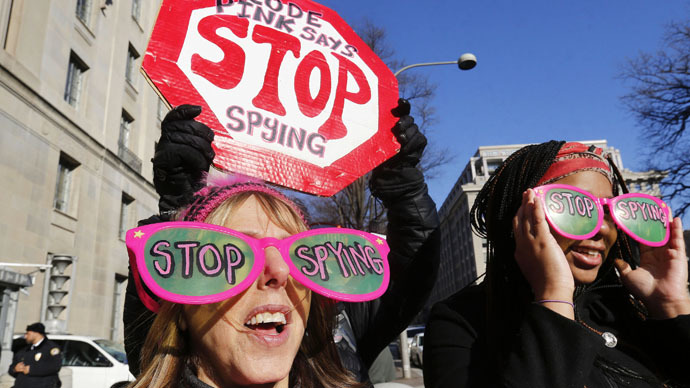US court tosses out mass surveillance case against NSA, AT&T

A longstanding case against the NSA – filed before the Snowden revelations were made public – has suffered a setback as the judge rules the plaintiff is unable to demonstrate she was placed under illegal surveillance.
In 2008, the Electronic Frontier Foundation brought a case (Jewel v. NSA) on behalf of five plaintiffs who alleged that the NSA and AT&T were engaged in an "illegal and unconstitutional program of dragnet communications surveillance conducted by the National Security Agency and other Defendants in concert with major telecommunications companies," according to the original complaint.
The plaintiffs, who are described in the court document as “ordinary Americans who are current or former subscribers to AT&T’s telephone and/or Internet services,” initiated their lawsuit after it was revealed by former AT&T technician Mark Klein that the communications giant had a secure room where customer data was being collected by government agents.
US District Judge Jeffrey White found that the lead plaintiff, Carolyn Jewel, was unable to show that she was the victim of surveillance. At the same time, White ruled that the claim must be tossed out “on the basis that any possible defenses would require impermissible disclosure of state secret information.”
"The Court is persuaded that its decision is correct both legally and factually and furthermore is required by the interests of national security," said Judge White, of the Northern District of California.
Although Klein’s allegations of a secret room at AT&T generated some public attention, things got more interesting in June 2013 when NSA whistleblower Edward Snowden handed over to journalists thousands of classified documents, blowing the lid off a global surveillance system involving the so-called Five Eyes [The US, UK, Australia, Canada and New Zealand], as well as the cooperation of multiple telecom firms.
Suddenly, it looked as though the plaintiffs had a very strong case against the defendants, who included the most powerful politicians in the country, including then-Vice President Dick Cheney, then-President George W. Bush, and former NSA director Michael Hayden, among others.
However, the court did not consider the raw evidence of mass collection of domestic communications, which could have forced the plaintiffs to have their long-awaited day in court.
Despite the setback for the plaintiffs, their lawyers have said they will continue the battle.
“The judge's ruling only concerned Upstream Internet surveillance, not the telephone records collection nor other mass surveillance that are also at issue in Jewel,” Kurt Opsahl, an EFF attorney, told Ars Technica, referring to the NSA’s ability to collect customer data directly from fiber optic cables.
“We will continue to fight to end NSA mass surveillance,” he added.
The court cited a 2013 Supreme Court decision known as Clapper v. Amnesty International where it was found that the plaintiffs (Guantanamo Bay lawyers, for example) who believed their communications were being intercepted due to a “speculative chain of possibilities” was insufficient to establish injury.
Noteworthy, the Jewel case follows a 2006 case (Hepting v. AT&T), which the EFF also brought to the court. That case was also tossed out in 2009, after Congress declared telecommunication companies immune from such lawsuits.
One of the lawmakers that voted for the immunity was the then-Senator from the state of Illinois, Barack Obama














